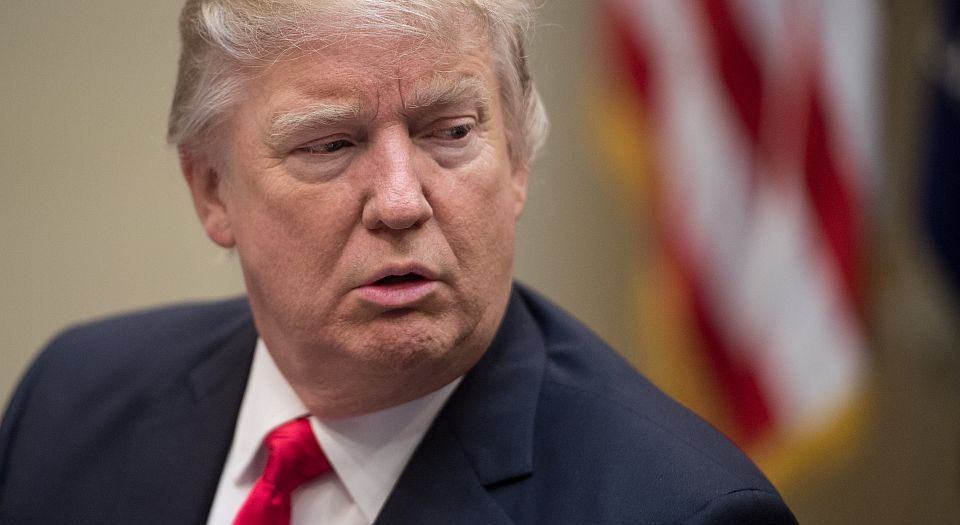It isn’t only Trump who’s demeaning the Civil War
Scepticism about the Union’s intentions is now widespread.

President Donald Trump is in hot water again, this time for comments he made about the American Civil War. In an interview with the Washington Examiner’s Salena Zito, Trump suggested that nobody knows the real cause of the Civil War. ‘People don’t realise, you know, the Civil War, if you think about it, why. People don’t ask that question, but why was there the Civil War? Why could that one not have been worked out?’
As many have pointed out, the cause of the Civil War is the most contested question in American historiography. Historians have long battled over what caused America to be plunged into conflict. It’s also a contested topic outside of academia. In the South, public displays of Confederate symbols are a constant source of controversy. There has recently been tension over the flying of the Confederate flag in South Carolina and the removal of Confederate-related statues in Louisiana. Underlying the arguments over these symbols is a contested memory of the Civil War, and disagreement over who was morally right in the conflict.
It should go without saying that the war was about slavery, and therefore that the anti-slavery Union was the good, right, moral force in the conflict. By questioning the cause of the war, Trump has, perhaps unintentionally, challenged this idea. If no one is really sure what caused the conflict, as Trump seems to think, then surely we can’t be sure that the Union was morally superior to the Confederacy?
Many media commentators and Twitter personalities have taken great pleasure in educating Trump on the cause of the war. Which is fine – most people, save a few neo-Confederate wingnuts, agree that it was a desire to end slavery that gave rise to war between the North and South. But it isn’t only Trump who is contesting history. There appears to be a revival of Civil War scepticism on the left, too, particularly around the question of whether the Union really was morally opposed to slavery.
For instance, many on the left praised the Oscar-nominated documentary The Thirteenth, which argues that the Civil War ended without the abolition of slavery. It claims the piece of legislation that officially ended slavery in America — the Thirteenth Amendment to the US Constitution — actually allowed slavery to continue, through a clause permitting penal labour.
The amendment that ended slavery — which was made possible by the Civil War and the victory of the Union — is said to have sustained slavery through the backdoor. In the words of columnist Shaun King, a fan of the documentary, with ‘a wink and a nod’, it allowed slavery ‘to continue’. In short, the Civil War wasn’t really about ending slavery; the North was not ‘good’.
This interpretation implies that lawmakers in the North were indifferent to the abolition of slavery. In truth, the wording of the Thirteenth Amendment was plucked from the Northwest Ordinance, which, even before the Civil War, had successfully prevented slavery in the mid-Western states. That is, the amendment was unquestionably intended to end slavery and realise the ideals of those who fought for the Union.
The supposedly radical claim that slavery was fundamentally a non-issue for the Union — made by the kind of people who oppose Trump — mutes the deeply moral purpose behind the Civil War. It also demeans the historic role of Abraham Lincoln. According to Lincoln, the Union could only be saved and maintained by the removal of the deeply immoral institution of slavery.
Drawing on the Declaration of Independence, Lincoln argued that all men are created equal – this is what makes a republican government both possible and right, he said. Slavery, in Lincoln’s view, was an institution that violated this notion of human equality, and as such, it threatened the existence of republican government.
In a speech in 1854, Lincoln said: ‘Near 80 years ago, we began by declaring that all men are created equal.’ But the existence of slavery means ‘our republican robe is soiled, and trailed in the dust’. ‘Let us re-purify it’, he said. Ending slavery would ‘not only save the Union’ — it would ‘make, and to keep it, forever worthy of the saving’.
We can, and should, mock Trump for his ignorance of history. But he isn’t the only one weakening the moral force behind the cause of the Union. A declining faith in the founding principles of America, and in the ‘white men’ of American history, means too many now casually write off some of America’s great historical leaps forward.
Tom Bailey is a spiked columnist. Follow him on Twitter: @tBaileyBailey
To enquire about republishing spiked’s content, a right to reply or to request a correction, please contact the managing editor, Viv Regan.







Comments
Want to join the conversation?
Only spiked supporters and patrons, who donate regularly to us, can comment on our articles.